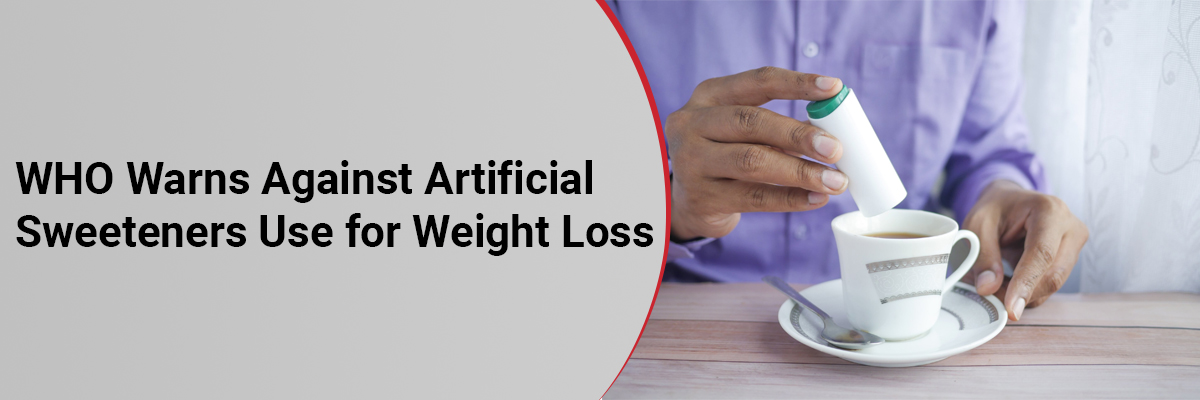
 IJCP Editorial Team
IJCP Editorial Team
WHO Warns Against Artificial Sweeteners Use for Weight Loss
The World Health Organization (WHO) has cautioned against artificial sweetener use for weight control or noncommunicable diseases (NCDs) risk reduction. Previously, artificial sweeteners also known as non-sugar sweeteners (NSS) were widely recommended to patients with diabetes and those following dietary measures for weight loss.
According to a scientific review conducted by the WHO, the consumption of these sweeteners has been found to be associated with an increased risk of Type-2 diabetes (T2D), cardiovascular diseases, and long-term mortality. Additionally, some preliminary evidence suggests a link between the use of artificial sweeteners and bladder cancer and preterm birth in pregnant women.
The WHO emphasizes that weight control and healthy weight sustenance are crucial for improving health. However, the minor weight loss or reduced body mass index (BMI) observed over a few months in trials studying artificial sweeteners justify the evidence of the long-term deleterious impact.
The WHO recommends reducing overall dietary sweetness, starting from early stages of life, as non-sugar sweeteners are not essential for a healthy diet and lack nutritional value.
Of note, this recommendation applies to all individuals except those with pre-existing diabetes. In general, people are advised to consider alternative methods of reducing free sugar intake, such as by consuming foods with naturally occurring sugars like fruits or opting for unsweetened food and beverages – rather than switching to artificial sweeteners.
Prof K. Srinath Reddy, a Distinguished Professor of the Public Health Foundation of India (PHFI), considers these findings significant. He emphasized the dangers of artificial sweeteners in increasing the risk of cardiovascular events by correlating them with metabolic studies of these chemicals in circulating blood.
As the presence or levels of artificial sweeteners are not disclosed on processed food packaging, opting for natural foods and avoiding sugar substitutes is a safer choice.

IJCP Editorial Team
Comprising seasoned professionals and experts from the medical field, the IJCP editorial team is dedicated to delivering timely and accurate content and thriving to provide attention-grabbing information for the readers. What sets them apart are their diverse expertise, spanning academia, research, and clinical practice, and their dedication to upholding the highest standards of quality and integrity. With a wealth of experience and a commitment to excellence, the IJCP editorial team strives to provide valuable perspectives, the latest trends, and in-depth analyses across various medical domains, all in a way that keeps you interested and engaged.










.jpg)








.jpg)

Please login to comment on this article